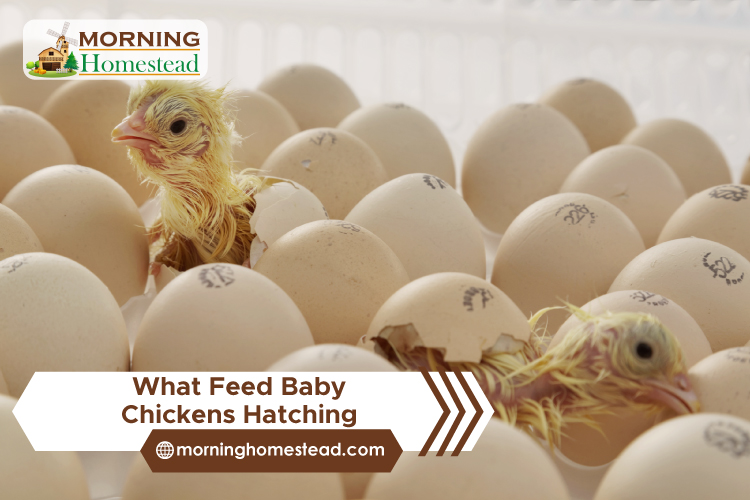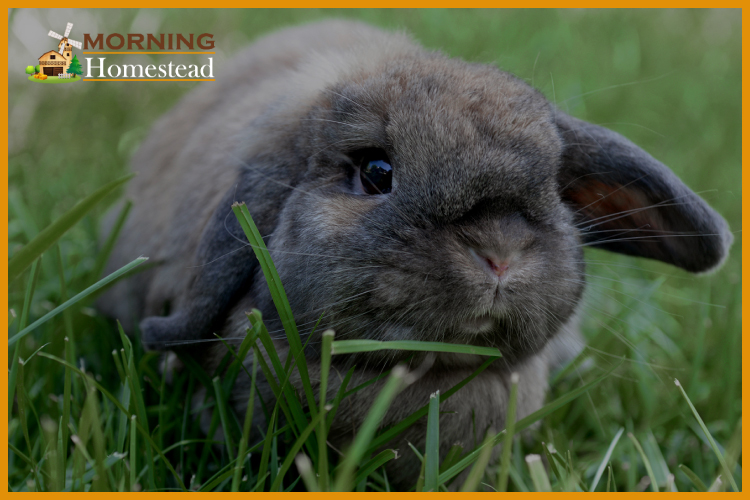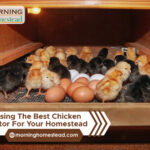Last Updated on June 20, 2023 by Georgie Smith
It seems like it takes baby chicks a very long time to hatch. People who raise their own chickens cater to these unborn chicks as if they are their children. To some people, they actually are that special. If you are new to raising chickens, you may not know what to feed baby chickens after hatching. It may even seem trivial. However, the right food is as vital as the pampering you gave the unborn chick.
After close to three weeks of watching and waiting, you are about to welcome your new chicks – Hooray! Be sure you have everything ready for you’re their arrival. Are you ready? Let’s talk about baby chicks.
he following information will help guide you with raising your new baby chicks. Here is what you should look for and expect throughout the final stages of the upcoming hatching process.
Basic Comparison:
SSL
Storage
Domains
Sub-domains
Chick Starter Feed
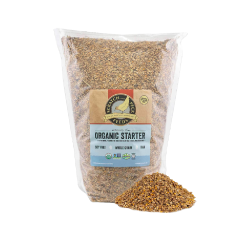
Item Form - Mash
Chicken
Age Range - 1-8 Weeks
Flavor - Naturally
Medicated Chick
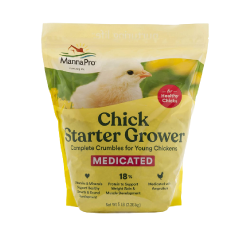
Brand - Manna Pro
Age Range - Baby
Item Form - Pellet
Target Species - Bird
Manna Pro Chicken
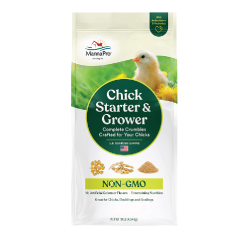
Brand - Manna Pro
Target Species - Chicken
Item Form - Pellet
Immune Health
The Time Has Come-Pipping to the Hatching Moment
The time is here that you have waited for with your chicks entering the world. Do not expect it to happen fast or in a particular time frame. Chicks coming into this world will do so in her time when she is ready.
What is Taking Place Behind the Shell?
On the 20th day is where it all begins:
On this day, the yolk completely absorbs fully into the baby chick. That process is the reason newborn hatchlings can survive for several hours without water or food. The chick’s beak sets poised and ready to start pecking its way out of the shell. Away from the air cell, the baby embryo fills the egg completely.
The “egg tooth” begins to penetrate the membrane, its lungs are working adequately, and continues to breathe the vital air within the air cell. Here you may start to see a tiny hole in the shell from the baby chick breaking its way through with her egg tooth. She will lose the “tooth” a couple of days after she is out of her shell.
The Exciting 21st Day:
For most of this day, much hatching will take place. However, some baby chicks hold on as long as they can and do not hatch precisely on time. That is nothing to worry about but never attempt to open the shell thinking you are helping.
You should never mess with the hatchling as she is hatching through her shell. The yolk may not have had time to absorb completely, and this will kill the baby embryo. If you were a baby chick that had just lived for three weeks very comfortably. Suddenly, to get out, it was going to take much strength and time, you would be slow arriving as well.
It is an exhausting process and, it will require many rest periods before she finally hatches. The time it takes can be anywhere between twelve and eighteen hours between pipping and the final hatch; some may take even longer.
Finally, one strong effort and you find a healthy, exhausted, nearly bald baby chick.
Baby Chicks Everywhere, Now What?
Now you see your baby chicks and how cute and precious, right? When your chicks begin expressing their emotions as they start living life, they do not get any sweeter. However, beings they are babies, they need very gentle care with a touch of finesse.
That is the reason why raising healthy baby chicks after hatching is often a bit tricky and challenging. Many people that are just beginning with raising chickens make many mistakes on their first go around. If you mishandle the baby chicks, it can cause long-term severe injuries.
Also, the first three weeks you must handle them with extra care. The manner to which you behave will affect the future relationship you have with your chicks.
Before we get into the proper foods you should feed your baby chicks, let’s go over a few vital do’s and don’ts with baby chicks after hatching.
Encourage the Baby Chicks to Drink Some Water
Once the baby hatches, it will naturally ingest the membrane and the yolk of their eggshell. As discussed, that gives them plenty of very valuable nutrients they need to be healthy. Due to the chicks eating the shell nutrients, there is no need to feed them again for one or two days after hatching.
However, it is vital that you introduce them to water within the first 24 hours of hatching. The mother hen would take over and direct her babies on how to drink fresh water if they hatched naturally. Just be sure that you have plenty of water handy.
However, if the baby chicks are incubator-born babies, you will need to place a baby chick waterer into the incubator. If you see that they are not drinking water within the first few hours, you may need to encourage them. You do this by dipping their small beak into the water very gently.
It is vital that the water is in a waterer made explicitly for baby chickens. The adult-sized waterer is only going to bring disaster to the baby chicks, especially if they fall in while not being monitored. Keep in mind, these are babies, and they will become distressed when you first handle them-but you have to ensure they are drinking water.
Do not give up, however, be patient and persistent and always gentle. [1]
Do Not Remove Them Until All the Chicks Have Hatched
While hatching is taking place, you may notice some chicks are hatching close to the same time. You may think all the hatching is complete, but, that can be a big mistake. There truly is no right way to predict when the chicks are going to hatch.
Just because you may think the hatching is over, think again. It could be 10 or 11 hours later and another pop out to join the rest of the clan. That is why you must keep your chicks in the incubator for at least 24-48 hours. The chirping of the babies encourages the others to hatch.
Be sure to leave any fertilized eggs in the incubator for another 24 hours even once you have removed the hatchling. Hatching day is exciting and thrilling. Once the newness wears off the next round of questions such as, “What am I to do now” begin if you are new to raising chickens.
The following are a few do’s and don’ts to get you started:
Chicken Euphoria:
We can all agree that baby chicks are adorable and fun for the family after they hatch. They are basically hairless and not so easy on their feet. That is when baby chicken euphoria kicks in. The issue with this is that most tend to overdo it and cause stress on the babies.
While beginning their food regime, the best step to take is to ensure you never overfeed them with their starter food. By the time you feed the chicks, your family feeds them, and your guest wants to feed them, that is overkill.
Little surprise handfulls are not such great ideas either. The reason why is, food for full grown chickens such as this bestseller by Scratch and Peck Feeds can be harmful to a baby chick. The chicks organs are still in early development, and some feed can harm the little ones.
They are Babies-Handling Them Like One:
Everyone fights the urge to hold a new baby chick. However, most do not realize how fragile and weak new hatchlings are when wanting to hold one. It is vital that you know when picking up a chick you must gently restrain her to prevent her from moving her wings. You almost must leave enough room for her to move her legs without hitting something freely.
When walking towards the pen or incubator, approach her slowly and pick her up slow. You should have a little taste of her feed in your hand to get her to approach you. Keep in mind, they are babies, and they will typically run out of fear.
They Need to Stay Warm – But, How?
On their second day after hatching, you need to remove the chicks from the incubator. Brooders are typically what people use for their baby chickens. It is the safest and best way to ensure they adapt to the environment as well as one another.
Some crafty people prefer to build their own brooder while others buy one such as this leading seller online. Whatever product you decide on, the most vital thing is temperature. When you move the new babies to the brooder, the temperature must remain at 95 degrees Fahrenheit.
Each week you can lower the temptation by five degrees. You will recognize the signs the chicks show if they are hot or cold. When the temperature is too hot, they will stay as far away from other chicks as possible. When they are cold, they will behave just the opposite and group together.
The most crucial thing you must have when raising new baby chicks is patience. Once they begin to see you as an authority figure, it will be simple moving them from the brooder to a coop. The best way to prepare your wee ones for adulthood is to have the perfect brooder. [2]
What to Feed Baby Chicks After Hatching
Baby chicks are no different from any other newborn. The chicks need excellent nutrition to prepare them for being a baby chicks while growing into a full-feathered adult. From the first peeps to clucks, the down to feathers, and the unnoticeable nub on top of their head-turning to beautiful red combs, change happens fast.
The chicken is the fastest transforming animal there is. It starts from the day they hatch until they are around eight weeks old they are nearly three-quarters of their adult size and weight. When you look at it like that, it is rather extraordinary.
Let’s take a look at the nutritional needs of a baby chick:
As I mentioned above, the first thing baby chicks need access to is clean, fresh water at all times. Playing in water is one of the critical roles in overall health and well-being due to aiding the majority of its bodily functions.
Mature chickens and chicks alike consume roughly double the water amount as compared to their feed. Therefore, it is a serious risk and can profoundly affect the young chick’s health not to have ample amounts of water.
Now we can get started on what to feed baby chicks:
Babies and young chicks start pecking at a chicken starter such as these bestsellers:
- Manna Pro Chicken Starter Grower Crumble, 5-pound
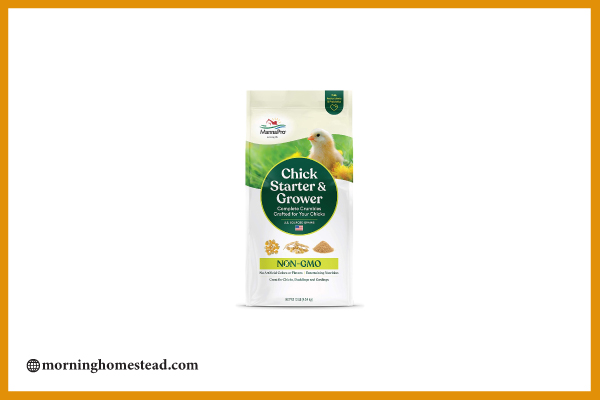
- Manna Pro Medicated Chick Starter Crumbles, 5 Lb
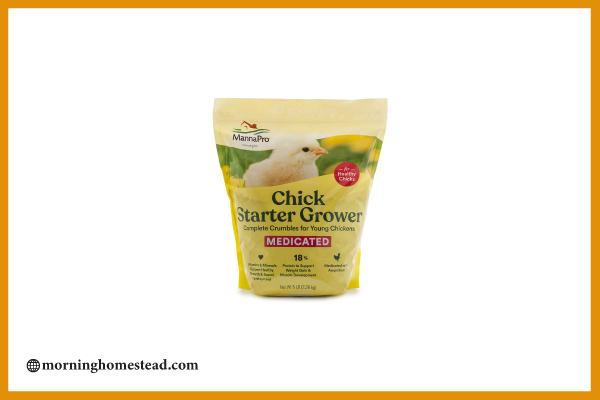
- Scratch Creek Certified Organic Feed – Chick Starter – 10lbs
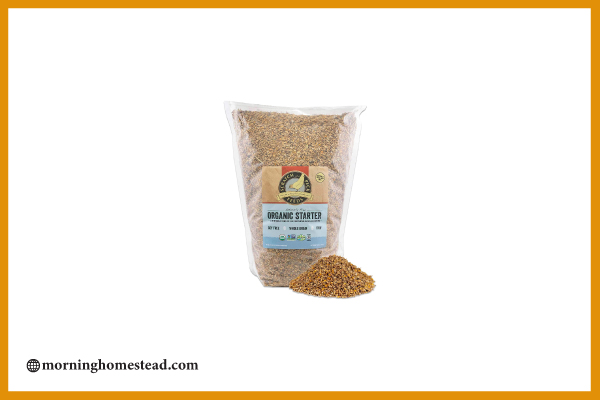
Chicken starter ingredients contain all the crucial nutrients baby chicks require to grow and develop to be a stout rooster or a productive egg layer. Generally, the chick will consume a starter mix until she is eight weeks old. However, several commercial brands on the market today sell a starter and market it as a starter/grower.
You should feed your chick these types of starters for sixteen to eighteen weeks for the young men and to the point of lay for the ladies. There is an excellent alternative to buying commercial chick starters. All you need are two products you would typically keep in your home; eggs and oatmeal.
To make the mix, hard boil some eggs, mix them really well then add the oatmeal. However, if you have a large flock of little fuzzy chicks, it is best to feed them a healthy commercial starter such as the ones mentioned earlier.
What is in the Mix?
The composition of chick starters originates with the most vital nutrient – protein. Other than water, protein, both animal and plant is the second most critical nutrient for young chicks. The powerhouse bodybuilder stimulates muscle growth, tissues, and organs. In other words, it is what aids with the growth of the wee ones. Also, you can feel free to feed your baby and the young chick worms you find.
Carbs, fats, vitamins, and minerals are the remaining nutrients that make up the ingredients needed by fast-growing baby chicks. You never need to worry if the chick starter you are feeding your little flock is providing the nutrients they need, it’s all right there in one bag.
Remember, commercial starter feed has all the right ingredients and is balanced with precisely what young chicks need. Look for a good brand that provides non-GMO-organic ingredients that contain between 15 and 20 percent protein.
The least expensive and best place you can find these products is online. Be sure you check the ones I have provided in this article as they are best sellers rated by consumers.
Medicated or Non-Medicated?
Not every chicken farmer likes to medicate their feed for their baby chicks. If you keep your babies in a clean brooder and ensure that you clean it often to remove droppings, why bother? Also, make sure they have plenty of space, and there should be no concern for medicated feed.
However, if you bought your baby chicks from a hatchery, be sure you find out if the chicks received vaccinations against Coccidiosis. If the answer is yes, definitely do not give any type of medicated feed to the birds. It will not harm them. However, it will void the Cocci Vaccine.
When is Medicated Food a Necessity?
Chickens commercially hatched need medicated feed to prevent the spreading of disease. Also, flocks that hatched and reared in extremely cramped conditions, such as many commercial farms, eat medicated food to avoid spreading diseases.
Side Note: If you are hatching over 50 chicks at one time, you should consider medicated food.
Life in the Brooder: How and When to Introduce Feed
As soon as you introduce your little fluffy flock to their brooder, you should then present them to water. Food, at this moment, is not as critical. The chicks will not starve to death if you first let them settle into their new home and surroundings before providing grains.
Also, in any given event, the young birds need to spend the first few days after hatching—sleeping. Young chicks are naturally nosey animals, and the way they love to explore their surroundings is with their beak.
Side Note: A handy tip for introducing food is to use a roll of kitchen paper towels on top of a non-slip cover and sprinkles of their starter food on it. The sound of the food dropping will gain their attention, and of course, they will want to investigate. They will learn what food smells, looks, and tastes like for the first time in one gathered area. Sprinkle the feed at the end of day one and then early in day two. Their curiosity will have them pecking in no time.
What is the Best Feeder Containers?
Once you teach your chicks what their food taste and looks like, now is the time to put it in containers. The tips you will learn early in the game is baby chicks are pros at kicking all their bedding in any type of food container. They are also just as good at kicking their feed in their bedding.
There are many types of container designs available on the market today. If your flock consist of four or five chicks, long containers such as this one, are the best. Young chicks will not have an easy time climbing inside.
What About Grit?
Many newbies ask the question if they should provide their baby or young chicks grit? Grit is just as it sounds, tiny pieces of sand, stone, and the earth. Chickens eat grit to aid with digestion. So, do baby chicks, and young chicks need grit?
If your chicks are eating starter only, they do not need grit. However, if you start adding treats and kitchen scraps to their diet, they will probably need a small amount of grit. If the area where your chicks live is a pleasant, temperate climate where they can roam freely, chances are they get plenty by pecking the ground. If that is the case, the amount they get from free-roaming is sufficient for a balanced diet.
There are other options for alternatives to commercial chick starter. Yes, you can make your own baby chick food, but is it worth it? Granted, by making your own, you gain peace of mind that they are eating healthy. However, it is a complicated process, and the ingredients can be costly and a strain to measure correctly.
FAQs:
Q: How often do chickens lay eggs?
A: This has a few stipulations for this answer. It depends on the breed, the age of the hen, and the season where the hen lives.
Q: Is it necessary to have a rooster to have eggs?
A: No. However, if there is a rooster around, he can fertilize the eggs. Hens will lay an egg with our without a rooster hanging around.
Q: How does the rooster fertilize the eggs?
A: The hen and rooster must mate first before the formation of the eggs for fertilized eggs.
In Conclusion
There is not much that is not cute and sweet about baby chicks. They are fluffy and a favored pet of homesteaders and for anyone that wants organic chicken eggs. It is just as crucial for a chicken farmer as it is for the next-door neighbor with just a few chickens to treat them well and ensure the feed they eat is healthy.
Starter feed is just like baby food for humans; it is the necessary nutritional stepping stone to generate a healthy chicken. Take the time and read ingredients before choosing just any feed because it cost less.
Usually, if the cost is less, then less than stellar-quality ingredients are in the mix. Hopefully, in my article, you learned how important healthy feed is to have healthy chicks. Before you shop elsewhere, be sure to check the products I listed throughout the article.
I only choose the best sellers with the highest customer ratings to apply to my articles. For our readers, you can rest assured that we do the homework for you and the products we discuss are the best on the market. If it is not good enough for ourselves, we do not advocate for it to be good enough for our readers. Your best interest is what we have at heart.
Thank you for taking the time to read this article on young baby chicks and the right food and treatments needed after they hatch. If you have any questions or would like to add to the article, feel free to leave me a note and I will personally reach out to you.
While you are here, could you “like” our page and share our article on your social media outlets? For us to grow we count on our readers to help spread the word that we are here. Your loyalty and dedication to our site mean more than we could ever express.
Thank you again for reading my article, “What To Feed Baby Chickens After Hatching,” and happy days on the homestead.

